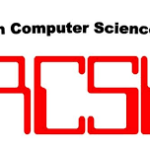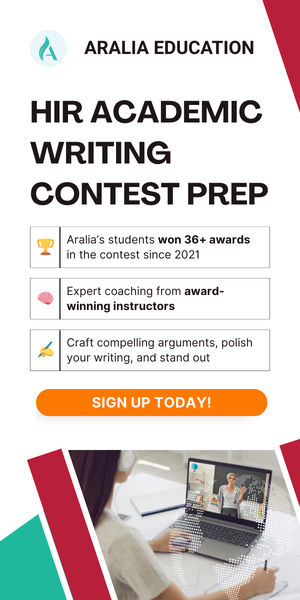1. Choose a Coding Language to Start With
There are countless computer science languages out there, all with different uses and strengths. For beginners, we recommend starting with Python, Javascript, or HTML/CSS. For more advanced learners, try out C++. Regardless of which language you choose to focus on, there are plenty of resources online to get you started learning the basics. Knowing which language you want to learn will help you to find the appropriate resources, clubs, and classes as well.
Python: typically used to develop websites, Python is the simplest and most straightforward programming language that’s most suitable for beginners.
Javascript: for front-end and back-end development of websites and apps.
HTML: codes the basic structure of a website without graphics or design elements.
CSS: once the HTML skeleton is laid down, CSS comes in to code the graphics and design elements of the website to make it aesthetically appealing.
C++ or C# or C: a very popular and challenging back-end programming language that gets into the nitty gritty of what goes on under the hood in programming (ie. memory management, which is already taken care of in languages like Python).
Aralia Students Are 3x More Likely to Place Top Computer Science Competitions
2. Take Advanced Math Classes
Computer science requires a deep understanding of math. In order to excel at computer science, you should take as many of these math courses as possible: Pre-Calculus, Calculus, and Statistics.
3. Work 1:1 With a Teacher at Your School
Ask your science and math teachers to see who has a background in computer science, engineering, and/or technology design. You can ask them to be your advisor and work together to start your own class (aka independent study).
Your teacher can help you create a customized curriculum to study for AP Computer Science A or AP Computer Science Principles. What’s different between the AP Computer Science exams?
Another option is to create a personal project and follow the steps of the design cycle to make your idea come to life. Think of a simple design problem you can solve, or try your hand at recreating an already existing mechanism.
4. Join a Computer Science Club Inside or Outside of School
Join your school’s computer science club, set up a table at your club fair to launch your own, or join one for high school students in your local community. Toying around with computer science with like-minded peers can encourage you to not give up when you’re feeling lost on what your next steps are, or even with debugging your programming project. Clubs can introduce you to computer science events such as science fairs, hackathons, and other competitions. It’s also a great chance to find friends to form groups for these events.
5. Take a Computer Science Class Online
Get involved with computer science with online classes with Aralia Education. You can take classes during the school year or over holiday/summer breaks. Aralia Education is an innovative online education platform for ambitious middle and high school students worldwide. Aralia’s students are well-prepared for college and equipped for success in their future careers. Start learning computer science in high school with these courses: Intro to Computer Science and Intro to Python. Or, brush up on your math skills to gain a better understanding of how a computer works with a course on Pre-Calculus.
Unlock Your Programming Potential: Students in Our American Computer Science League Competition Preparation Class Are More Likely to Secure Awards
6. Sign Up for a Summer Program in Computer Science
Carnegie Mellon CS Scholars Precollege
Carnegie Mellon University, well-known for producing the world’s best computer scientists, introduces rising high school juniors to computer science through classroom instruction, hands-on research projects, faculty lectures, and industry engagement with leading tech companies. CS Scholars learn algorithm components (variables, functions, conditionals, and loops), basic data structures (lists and dictionaries), and problem solving techniques (algorithmic thinking, top-down design, testing, and debugging) in Python. This prestigious program is fully paid for by sponsors, hence very competitive to get accepted into. Students will also receive expert help with college admissions from this top-ranking university.
Dates: Program dates were June 22-July 20, 2024. For summer 2025, application deadline is estimated to be March 1, 2025.
Berkeley Summer Computer Science Academy
The University of California Berkeley hosts a 2-week summer program for 16–17-year-old high school students interested in studying computer science. No previous coding experience is required. “Students experience immersion in coding, powerful computer science concepts, collaborative programming, and problem-solving… take part in an intense, rewarding series of unique coding challenges every day, introduction to computing and coding languages, and pursuing a programming project of their own design and interest.” Students can expect Berkeley Summer Computer Science Academy to be at the level of a college undergraduate introductory course.
Dates: Program dates were June 16-June 28, 2024. For summer 2025, application deadline is estimated to be in February 2025.
Harvard Summer School Computer Science and Engineering Classes
Harvard University Summer School offers 7-week courses to high school students who are accepted into the Secondary School Program. Courses in programming and web development include: Introduction to Computer Science with Python, Intensive Introduction to Computer Science, Introduction to Artificial Intelligence with Python, Introduction to C++ for Programmers, and Data Structures. Other courses cover probability, mathematical modeling, wearable devices and computer vision, robotics, autonomous vehicles, drones, artificial intelligence, and theory on science, technology, and politics.
Dates: Program dates were June 22-August 10, 2024. For summer 2025, application deadline is estimated to be in February 2025.
Other university-hosted summer programs in computer science are available at MIT, Stanford, and UCLA.
7. Compete in Computer Science Competitions and Hackathons
American Computer Science League (ACSL)
ACSL hosts computer science competitions for K-12 graders to test their computer science knowledge and programming skills in a series of short answer questions and a programing problem. ACSL carefully selects the most necessary skills in our current computer science industry to test students. Participating in the ACSL contest is a great way to prepare for a computer science major or future career, and to get a realistic experience of what it’s like to be a programmer.
Eligibility: Elementary, middle, and high school students
Dates: Contest #1 November 2023 to January 2024. Contest #2 January 2024 to March 2024. Contest #3 February 2024 to April 2024. Contest #4 March 2024 to May 2024. Finals May 25, 2024.
USACO holds online and on-site contests throughout the year, with the top performers eligible to participate in the International Olympiad in Informatics (IOI). The contests are designed to challenge students’ problem-solving and programming skills, and they cover a range of topics in computer science, including algorithms, data structures, and computational thinking.
Eligibility: High school students
Dates: 3 Contests and 1 US Open spread throughout December 2023 to March 2024
International Olympiad in Informatics
The International Olympiad in Informatics (IOI) is one of the world’s most prestigious computer science competitions. It involves students from multiple countries competing to solve complex algorithmic problems. Students must be selected from their country’s national computing contests to qualify for this international competition.
Eligibility: Middle and high school students
Dates: September 1-8, 2024 in Alexandria, Egypt
Focus on using artificial intelligence to solve a challenge prompt in this global challenge hosted by Microsoft designers. Be at the frontiers of science using AI and technology to better the world. The Imagine Cup Junior is split into two categories based on age: AI for Good (13-18y/o) and Tech for Good (5-12y/o).
Eligibility: Students aged 5-18
Dates: January 10 to May 10, 2024
Apple invites young coders worldwide to create an interactive scene in a Swift playground (Swift is a programming language developed by Apple) that can be experienced within 3 minutes. The competition is an opportunity to showcase their creativity and coding capabilities through app playgrounds and earn real-world skills.
Eligibility: Minimum 13-years-old high school student
Dates: last deadline February 25, 2024 (2025 dates to be announced)
See more top computer science competitions for high schoolers.
Hackathons:
NASA International Space Apps Challenge is a 2-day global hackathon to be held by NASA on October 5-6, 2024, and is open to all ages and levels. The hackathon focuses on international collaboration and utilizing NASA and other space-based data to address real-world problems on Earth and in space.
PennApps is a hackathon that especially welcomes first-time hackers! Students must apply to enter, and must be high school students or college undergraduates. This year, PennApps will be held in September 2024. Major League Hacking hosts this hackathon and will be hosting many more hackathons in 2025.
Hack the North is Canada’s biggest hackathon and will be held September 13-15, 2024 in Waterloo, Canada. The hackathon is open to students from anywhere in the world who are at least 13 years old.
Hack NYU is a 48-hour hackathon open to high school and college students across the world. Students choose one of four tracks to compete in: Gaming & Digital Frenzy, Healthcare & Lifestyle, Mixed Reality & Interactive Media Arts, and Financial Technology & Empowerment. The event will be held at New York University and is hosted by NYU college students. Dates for 2025 are to be announced.
8. Apply for Computer Science Internships
Integrate into the Microsoft work culture in this 4-week summer internship program. Learn about core computer science concepts, develop career readiness skills, gain hands-on project experience, and receive mentorship from Microsoft employees.
Eligibility: Graduating high school seniors who live and attend high school within 50 miles of Redmond, Washington OR Atlanta, Georgia. Students must have completed pre-calculus or an equivalent, or 3 consecutive years of math by the start of the program.
Dates: July 8 to August 2, 2024. Applications opened March 5, 2024 for Washington and March 19, 2024 for Georgia.
Meta Summer Academy Externship
Get matched with a Meta (formerly Facebook) employee and experience their day-in-the-life working at one of the world’s largest social network companies. Develop your own computer science project and get your hands dirty with the latest, ongoing projects at Meta. Learn to code, explore careers, and develop essential soft skills to launch a successful future career at Meta headquarters in California during a 6-week, 30 hours per week, stipend-paid externship.
Eligibility: Sophomores in high school (10th grade) with a minimum 2.0 GPA. Full-year residents of East Palo Alto Belle Haven, North Fair Oaks, Redwood City.
Dates: June 1 to July 26, 2024. Application deadline was March 1, 2024. New admissions cycle begins early December 2024.
NASA Office of STEM Engagement (OSTEM) Internships
Work alongside research scientists and engineers to advance science, technology, aeronautics, and space exploration in a paid, full-/part-time internship in-person at a NASA facility or remotely. Students can choose from a wide range of internships.
Eligibility: High school or part-time college student with a minimum 3.0/4.0 GPA and at least 16-years-old. Must be U.S. citizen.
Dates: Apply by August 23, 2024 for the Spring 2025 session. Spring session begins January and ends May. Apply by February 28, 2025 for the Summer 2025 Session—or by October 25, 2024 for Early Decision. Summer session begins May and ends August. Apply by May 16, 2025 for the Fall 2025 session. Fall session begins August and ends December.
StandOut Connect (UChicago Polsky Center for Innovation)
Over the course of three months, students will participate in Sunday online workshops and a two-month remote asynchronous internship (30 hours per week) at a company founded by alumni of the nation’s top-ranking universities. An impressive 80% of students receive return offers.
Eligibility: High school students minimum 15 years old.
Dates: June 2 to August 30, 2024 for Summer 2024. September 1 to December 2, 2024 for Fall 2024.
BU Research in Science & Engineering Program (RISE) Internship Track
RISE is a six-week program hosted by Boston University where high school students will conduct research for 40 hours per week under the guidance of a faculty member, postdoctoral fellow, or graduate student mentor. The program concludes with a Poster Symposium summarizing the student’s research project, which they can submit to science competitions such as Regeneron Science Talent Search. Read about BU’s computer science faculty to see who you’d be interested in doing research with!
Eligibility: Rising high school seniors (12th grade). U.S. citizen or legal permanent resident.
Dates: June 30 to August 9, 2024. Application deadline for 2025 estimated to be February 2025.
9. Prepare for Computer Science Competitions With Aralia Education

• The program begins with two weeks of dedicated programming practice to provide participants with an opportunity to enhance their skills.
• Each of the 12 ACSL topics is allocated a two-week period, allowing ample time for in-depth exploration and understanding.
• Prior to each contest, participants are presented with two programming problems that are intentionally unrelated to the current topics.
• A Scholastic National Silver Medal Instructor and award-winning coach for major competitions
• Teach creative writing at a university and mentor young writers
• She holds an MFA in Creative Writing and a Juris Doctor degree











